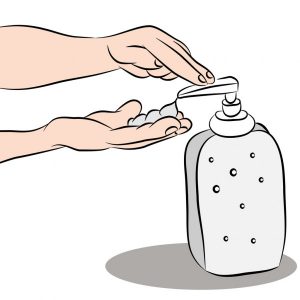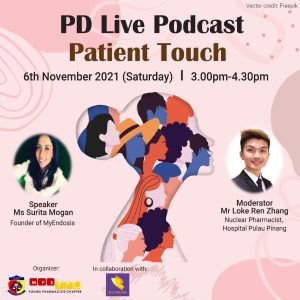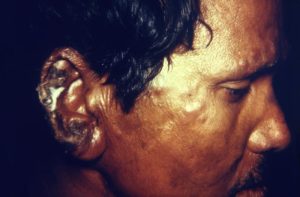Why you shouldn’t worry so much about the pharmacy profession and start working harder

Written by Mark Cheong Wing Loong – Lecturer, School of Pharmacy, Monash University Malaysia
As a pharmacy lecturer, I have the privilege of seeing our students graduate and go on to begin their careers as pharmacists. It is a wonderful thing, to see students joyfully take on the professional title of ‘Pharmacist’, knowing how hard they have worked to be one.
A part of me, however, knows that this joy can be short-lived. Upon joining the profession, many young pharmacists begin to experience the harsh realities of being a pharmacist. One of the harsh realities include the relative lack of respect or prestige accorded to the ‘pharmacist’ title and how the pharmacist’s role is often misunderstood and underestimated.
Many young (and some not-so-young) pharmacists become somewhat obsessed with how pharmacists are perceived and how it relates to their personal image. They grumble endlessly about how the title ‘pharmacist’ has no real value, how it doesn’t confer onto them any prestige, how the public misunderstands the role of pharmacists, and how poorly the pharmacy profession is perceived in general. In time, many of these pharmacists become bitter and begin to despise the title, blaming it for the lack of respect they receive from the public and their peers, in contrast to the respect and prestige that seem to accompany the title of ‘Doctor’. Some then go on to cast off the title of ‘pharmacist’, blaming it for the general unhappiness in their professional careers.
Now, I don’t mean to suggest that public perception isn’t important. It is. As a profession, we rely on public opinion and trust to allow us to perform our roles and responsibilities and many hardworking pharmacists within our professional bodies and advocacy organizations strive daily to raise the profile of the pharmacist profession. With that being said, a large part of how each of us are perceived as individual pharmacists depends on our own personal efforts. You cannot simply put on your professional title and expect it to grant you prestige, respect, and admiration from your peers.
If you want admiration and respect from other healthcare professionals and from the public, you have to earn it by making a difference in the lives of others. If you want people to know how smart you are or about all the amazing things that you’re able to do, prove it by demonstrate your abilities through service and work. If you want people to see you as being an important part of the healthcare team, work hard, pull your own weight, and add value to the team. Think of the commonly perceived limits of what a pharmacist can do and exceed them. Be a pioneer and expand the idea of what pharmacists can do. The ‘pharmacist’ title may not count for much right now but it doesn’t stop you from being a great pharmacist. Through sacrifice, hard work, and excellent service, it is possible for you, as an individual, to gain the respect and acknowledgment of the people you work with.
My young friends, worry less about how the pharmacy profession is currently perceived and focus more on being the best pharmacist you can be. If enough of us work on being the best possible version of pharmacists, we can improve how pharmacists are perceived. The prestige of the profession rises and falls with our individual actions. Through our individual actions and contributions as pharmacists, we make the profession better for the next generation.
The opinions expressed in the article are the writer’s own and do not reflect the view of MPS YPC.

Mark Cheong is currently a lecturer and public health researcher at Monash University Malaysia. He is a board-certified pharmacotherapy specialist and a registered pharmacist with a special interest in neurology and palliative care. His research interests are in the design, measurement and delivery of healthcare services in both the public and private sectors as well as the access to medicines and health services in low and middle-income countries. He has also held positions in healthcare management at various levels of healthcare in the private sector.













